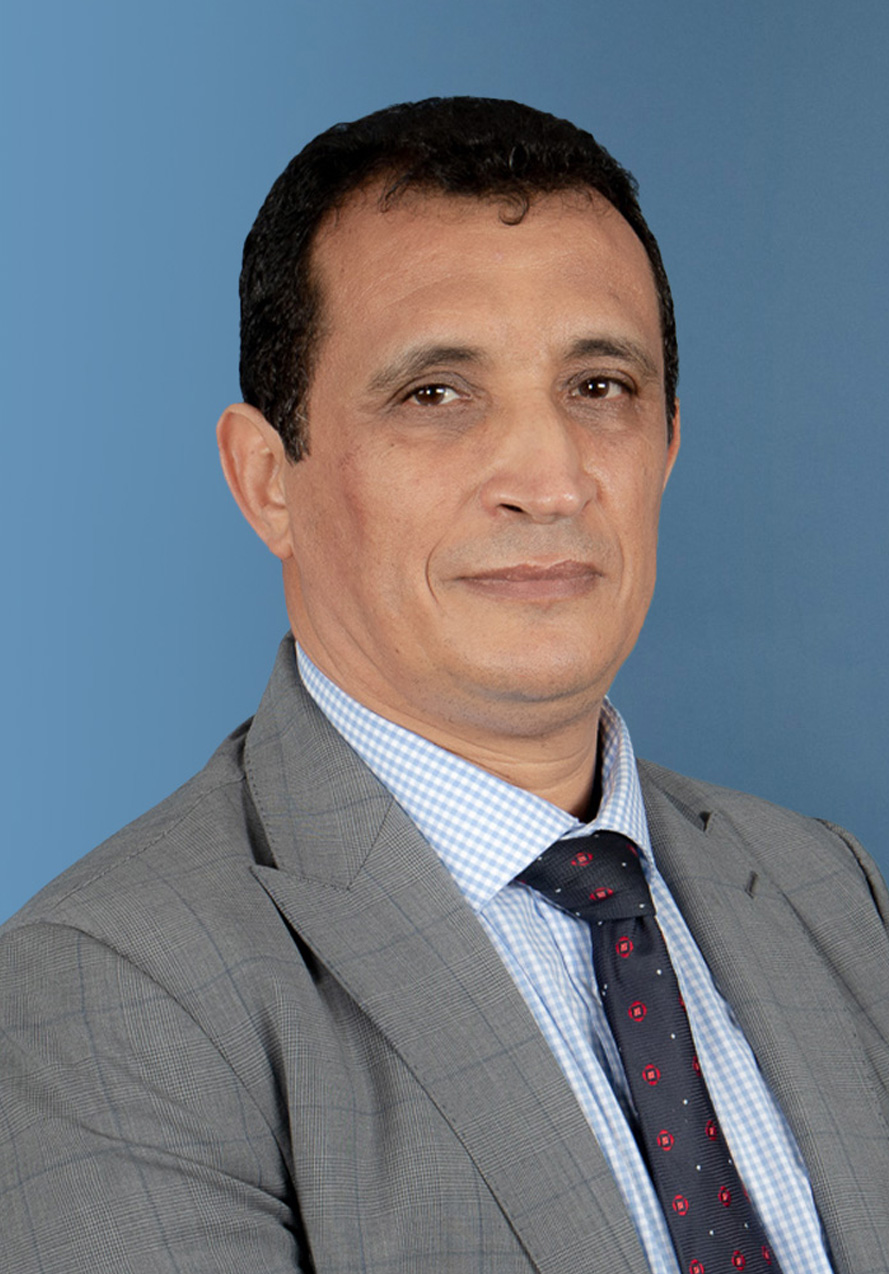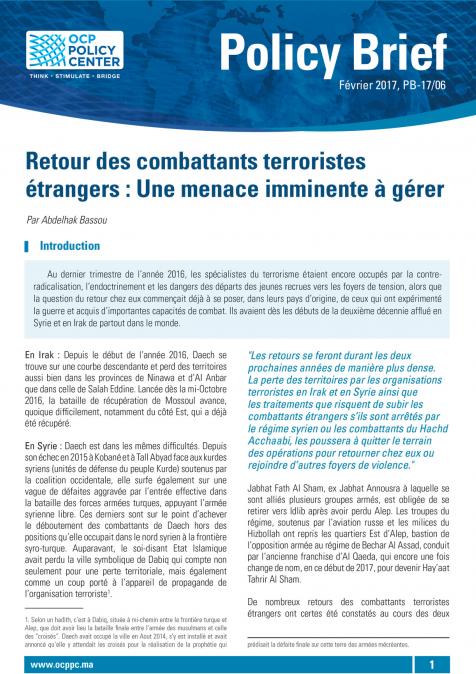Welcoming Remarks: Rachid El Houdaigui, Senior Fellow, Policy Center for the New South 1
Opening Conversation
Chair : Mounia Boucetta, Senior Fellow, Policy Center for the New South
Speaker: Her Excellency Catherine Samba-Panza, Former President, Central African Republic
Speakers

Rachid El Houdaigui
Senior Fellow
Rachid El Houdaïgui is a Senior Fellow at the Policy Center for the New South and an Affiliate Professor at Mohammed VI Polytechnic University. He also serves as a professor of International Relations at Abdelmalek Essaadi University's Law Faculty in Tangier. His expertise encompasses international relations, geopolitics, defense and security, focusing on the Mediterranean region, North Africa, and the Arab world. He also serves as a professor at the Royal College of Advanced Military Studies in Kenitra and is a visiting professor at Cergy-Pontoise University (Paris), Cadiz University (Spain), and La Sagesse University (Beirut, Lebanon).
He is the founder of the Moroccan-Spanish review "Peace and International Security" and oversees the Observatory of Mediterranean Studies ...

Mounia Boucetta
Senior Fellow
Senior Fellow at the Policy Center for the New South, Mounia Boucetta has over 20 years of experience in public administration, holding numerous managerial and leadership roles, and working particularly on the development of industrial and commercial policies. She was most recently Secretary of State to the Minister of Foreign Affairs and International Cooperation of Morocco from 2017 to 2019.
A graduate from the prestigious Mohammadia School of Engineers (Morocco), Mounia Boucetta joined the Ministry of Industry and Trade in 1991 where she held numerous positions before her appointment as its Secretary General in 2010. In this context, she contributed to numerous projects including, but not limited to, reorganizational projects, implementation of sectoral strategies, inve ...

Catherine Samba-Panza
Former President, Central African Republic
A company lawyer, human rights activist, Catherine SAMBA-PANZA, has conducted numerous actions in favour of women's law. A woman of dialogue, a member of the National Council of Mediation and the group of Wise of the Central African Republic, she has often been involved in the processes of dialogue and national reconciliation in her country.
Appointed Mayor of the city of Bangui in May 2013, then elected Head of State for the Transition of the Central African Republic in January 2014, she succeeded in completing the Transition by the organization in 2015 and 2016 of free, transparent and credible elections Which She has not been a candidate, thus complying with the provisions of the Transitional Constitutional Charter.
Since the end of her term, Ms. SAMBA-PANZA has participa ...











